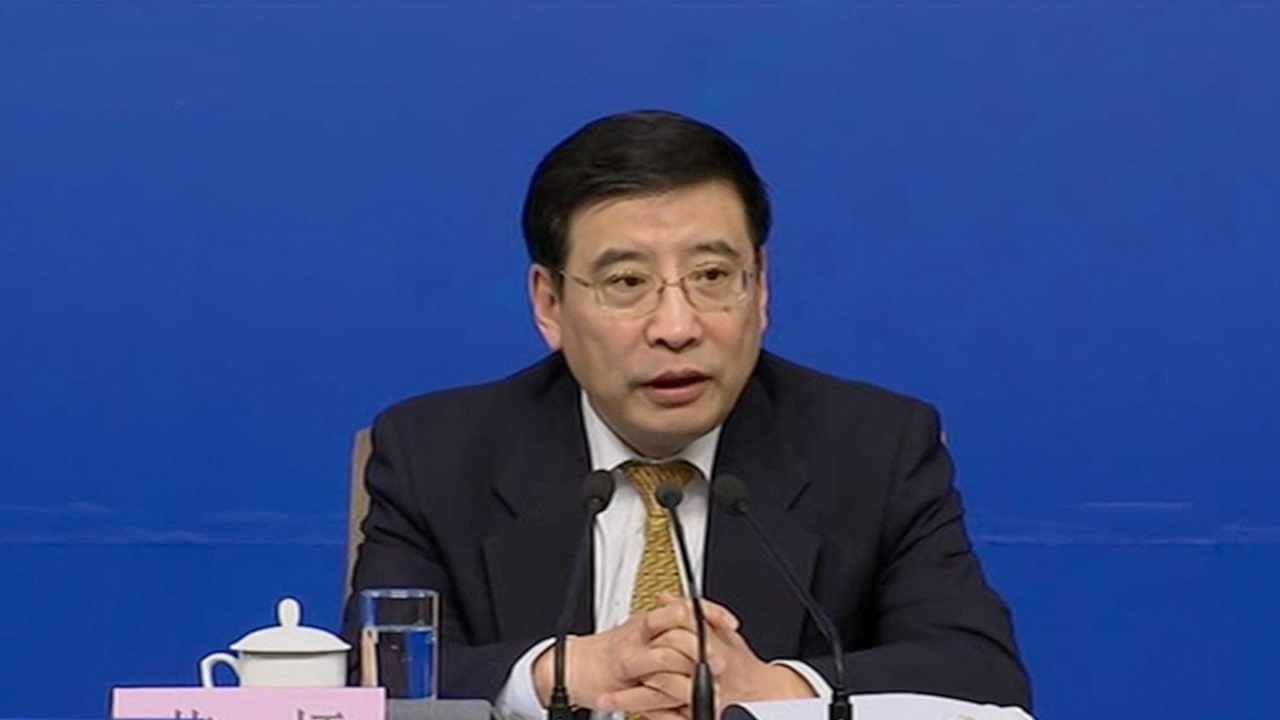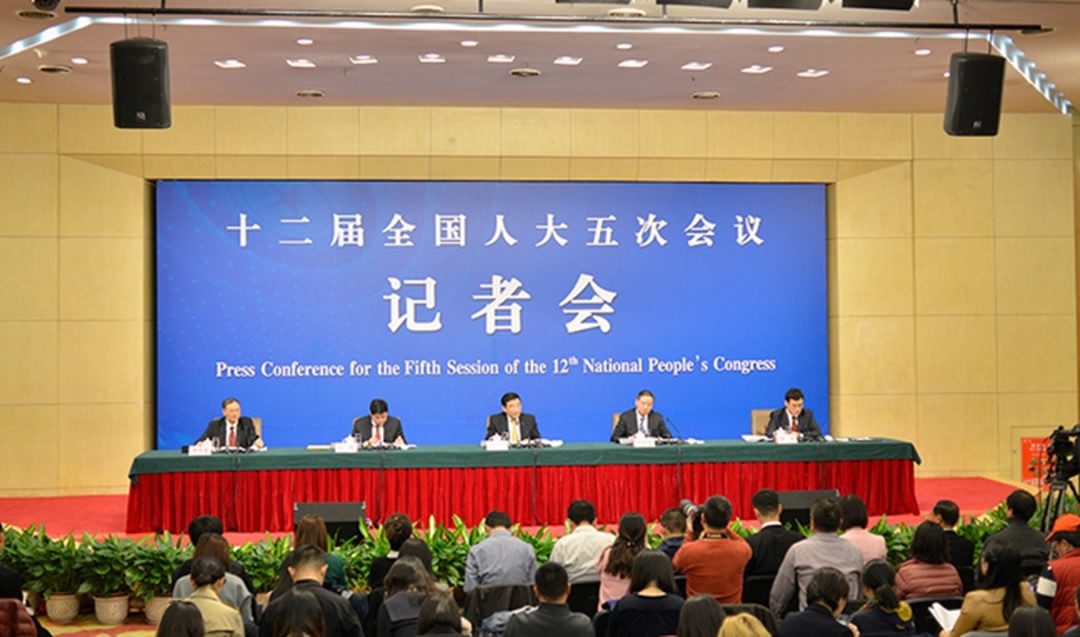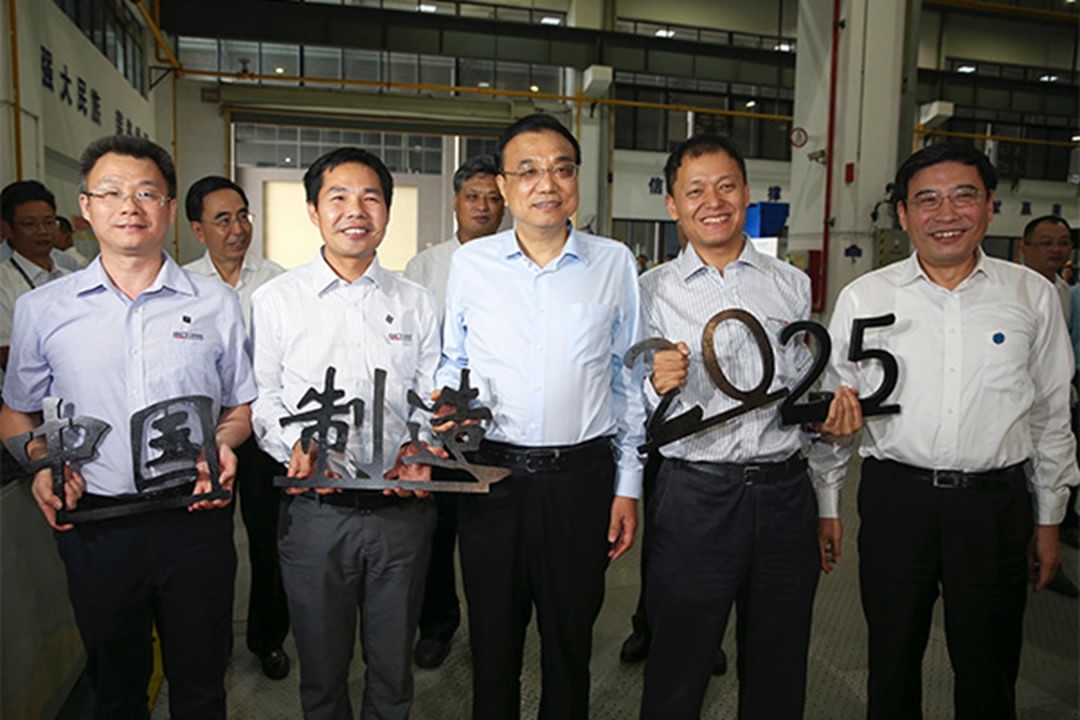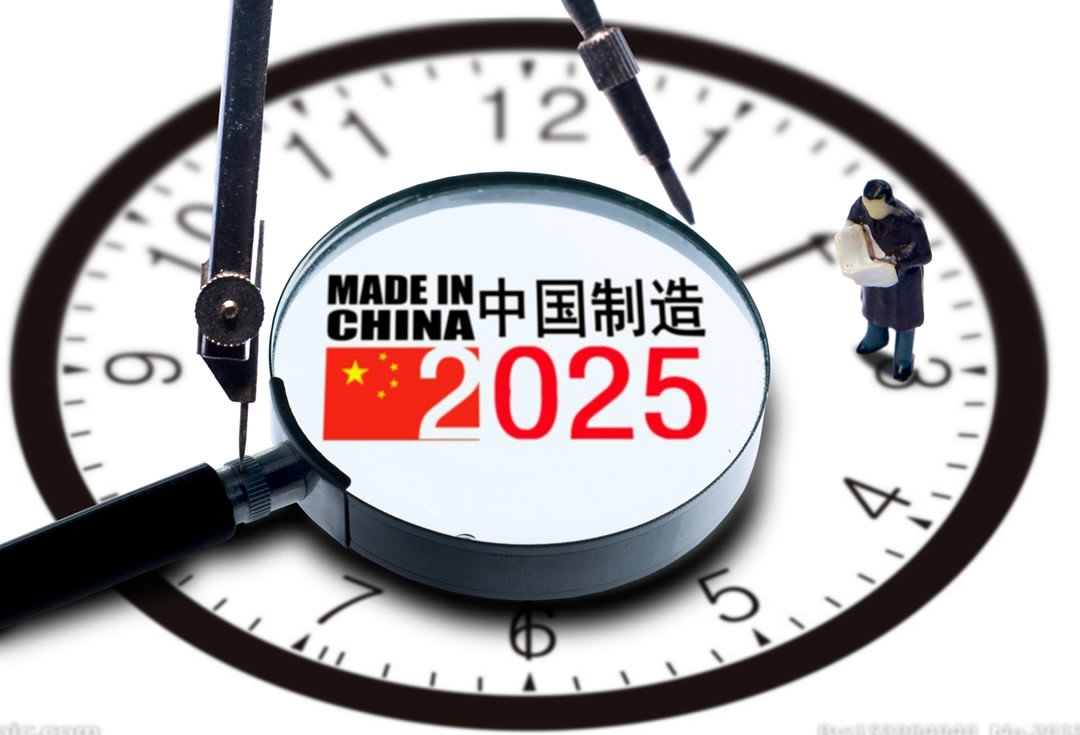
Business
12:00, 11-Mar-2017
Minister commits to market principles for 'Made in China 2025'
Updated
11:01, 28-Jun-2018

China always adheres to the principles of market orientation and policy guidance when implementing “Made in China 2025,” said Miao Wei, Chinese Minister of Industry and Information Technology.
He met the media along with members of the ministry’s management team for the 10-year national plan on the sidelines of the fifth session of the 12th National People’s Congress in Beijing on Saturday.

Officials from the Ministry of Industry and Information Technology answer questions from reporters at a press conference in Beijing on March 11, 2017. /China.com.cn Photo
Officials from the Ministry of Industry and Information Technology answer questions from reporters at a press conference in Beijing on March 11, 2017. /China.com.cn Photo
Miao reiterated China has granted equal treatment to domestic and foreign-invested enterprises in response to criticisms raised in a recent report “China Manufacturing 2025: Putting Industrial Policy Ahead of Market Forces,” released by the European Union Chamber of Commerce in China.
The report had sparked concern among high-tech foreign firms in China that their Chinese competitors enjoy massive government subsidies under the plan while they face market access barriers and business activities obstacles.
Miao said “Made in China 2025” is designed to accelerate the upgrade of China’s industry, so as to meet domestic demand for high-end equipment and products, some of which are embargoed to China by the West. He pointed out that economies like Germany, the EU and the US all have similar plans.
Other topics addressed at the media briefing included international awareness of Chinese brands, cross-Strait industrial cooperation, development of industrial robots, cancellation of roaming charges, technological breakthrough of new materials and financial support for small and micro businesses.
Miao noted changes in consumer demand with the rise of cross-border online shopping, and called for the branding of Chinese products. Chinese Premier Li Keqiang called for the boosting of consumption and improved quality of goods in his government work report.

Chinese Premier Li Keqiang (Middle) puts forward "Made in China 2025" initiative in 2015. /Gov.cn Photo
Chinese Premier Li Keqiang (Middle) puts forward "Made in China 2025" initiative in 2015. /Gov.cn Photo
Miao stated the ministry will implement the premier’s requirements by propelling supply-side structure reform, increasing product categories, improving product quality, promoting Chinese brands and conducting intelligent manufacturing.
The Chinese mainland welcomes semiconductor enterprises from Taiwan to invest, Miao added. For example, Taiwan Semiconductor Manufacturing Company, the world’s largest dedicated independent semiconductor foundry, is conducting a new project in Nanjing, according to the minister.
He emphasized the failed acquisition of Taiwan PTI Group and ChipMOS by Chinese mainland firm Tsinghua Unigroup should be attributed to negotiations between the enterprises. He expressed hope that the Taiwan market will be opened to Chinese mainland enterprises in the future.
Concerning the development of industrial robots, Vice Minister Xin Guobin revealed 72,400 sets were produced in 2016, a 34.3 percent increase year on year, but pointed out the risks of both low-end trend and excess production capacity.
Miao also promised to speed up the cancellation of domestic long-distance and roaming charges, effective from October 1, 2017, announced by the country’s three telecom carriers.

CFP Photo
CFP Photo
“Made in China 2025” was first introduced by Premier Li in his government work report in 2015, as a roadmap to build China into a manufacturing power.
Li also encouraged the integration of “Made in China 2025” with initiatives such as Internet Plus, mass entrepreneurship and innovation, with an emphasis on craftsmanship spirit.
The “1+X” initiative, implementation guidelines of “Made in China 2025” was completed in February by the Ministry of Industry and Information Technology, with the participation of over 20 State Council departments.

SITEMAP
Copyright © 2018 CGTN. Beijing ICP prepared NO.16065310-3
Copyright © 2018 CGTN. Beijing ICP prepared NO.16065310-3